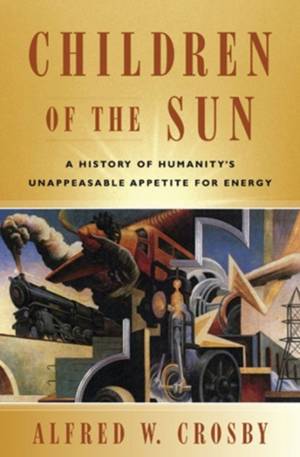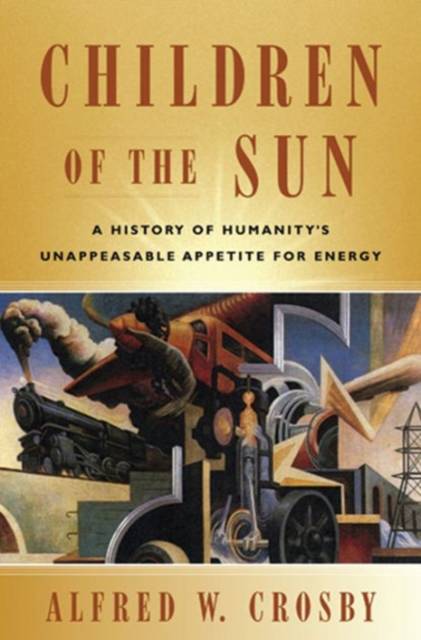
- Afhalen na 1 uur in een winkel met voorraad
- Gratis thuislevering in België
- Ruim aanbod met 7 miljoen producten
- Afhalen na 1 uur in een winkel met voorraad
- Gratis thuislevering in België
- Ruim aanbod met 7 miljoen producten
Children of the Sun
A History of Humanity's Unappeasable Appetite for Energy
Alfred W CrosbyOmschrijving
All life on earth is dependent on energy from the sun, but one species has evolved to be especially efficient in tapping that supply. This is the story of the human species and its dedicated effort to sustain and elevate itself by making the earth's stores of energy its own. A story of slow evolutionary change and sharp revolutionary departures, it takes readers from the origins of the species to our current fork in the road.
With a winning blend of wit and insight, Alfred W. Crosby reveals the fundamental ways in which humans have transformed the world and themselves in their quest for energy. When they first started, humans found fuel much like other species in the simple harvesting of wild plants and animals. A major turn in the human career came with the domestication of fire, an unprecedented achievement unique to the species. The greatest advantage from this breakthrough came in its application to food. Cooking vastly increased the store of organic matter our ancestors could tap as food, and the range of places they could live. As they spread over the earth, humans became more complicated harvesters, negotiating alliances with several other species--plant and animal--leading to the birth of agriculture and civilizations. For millennia these civilizations tapped sun energy through the burning of recently living biomass--wood, for instance. But humans again took a revolutionary turn in the last two centuries with the systematic burning of fossilized biomass. Fossil fuels have powered our industrial civilization and in turn multiplied our demand for sun energy. Here we are then, on the verge of exceeding what the available sources of sun energy can conventionally afford us, and suffering the ill effects of our seemingly insatiable energy appetite. A found of the field of global history, Crosby gives a book that glows with illuminating power.
Specificaties
Betrokkenen
- Auteur(s):
- Uitgeverij:
Inhoud
- Aantal bladzijden:
- 208
- Taal:
- Engels
Eigenschappen
- Productcode (EAN):
- 9780393931532
- Verschijningsdatum:
- 15/08/2007
- Uitvoering:
- Paperback
- Formaat:
- Trade paperback (VS)
- Afmetingen:
- 137 mm x 206 mm
- Gewicht:
- 226 g

Alleen bij Standaard Boekhandel
Beoordelingen
We publiceren alleen reviews die voldoen aan de voorwaarden voor reviews. Bekijk onze voorwaarden voor reviews.












